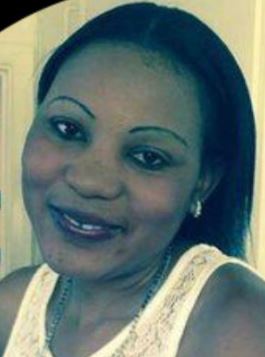
Jane Bwanya
South Africa’s Bill of Rights, Chapter 2 of its Constitution, begins its enumeration of rights with Equality: “Everyone is equal before the law and has the right to equal protection and benefit of the law.” Equality is followed immediately by Human Dignity: “Everyone has inherent dignity and the right to have their dignity respected and protected.” These are the first articulations of “everyone” in the Constitution of the Republic of South Africa. Last year, Jane Bwana, a domestic worker, a lifelong partner, a widow, challenged the meaning and substance of “everyone” … and on December 31, the Constitutional Court of South Africa ruled in her favor, and in favor of equality and Constitutional rights. This is the story of Jane Bwanya.
Jane Bwanya migrated from Zimbabwe to South Africa. In 2014, she was at a taxi rank in the posh Camps Bay neighborhood of Cape Town. She was on her way to send goods to her family in Zimbabwe. She was laden with various boxes and packages, when Anthony Ruch, a wealthy businessman, stopped and offered her a lift. She accepted the offer, and they never separated. Months later, at Ruch’s insistence, Jane Bwanya moved into his Camps Bay residence, although she continued to work as a domestic worker. Jane Bwanya and Anthony Ruch celebrated their relationship publicly, attending social functions together, identifying each in public as life partners. By October 2015, they said they were planning to get married. They were also planning to open a cleaning business together. In November 2015, Anthony Ruch proposed marriage to Jane Bwanya. Anthony Ruch sold property so as to pay for lobola and arranged for a trip to Zimbabwe, to meet the family and finalize arrangements. They planned to marry after the trip to Zimbabwe. That trip was planned for June 2016. On April 23, 2016, Anthony Ruch died. His will named his mother as his sole heir. His mother died in 2013.
Jane Bwanya filed two claims, one for maintenance the other for inheritance, as a permanent life partner. The executor of the estate rejected both claims, basically stating that the Maintenance of Surviving Spouses Act and the Intestate Succession Act did not allow for opposite-sex life partners, and so, with the help of the Women’s Legal Centre, Jane Bwanya sued, arguing that the exclusions were unconstitutional. And so, Jane Bwanya sued for, and in the name of, equality and dignity. Everyone.
Writing for the majority, Justice Mbuyiseli Russel Madlanga noted, the rights, equality and dignity of same-sex survivors had already been established. According to the court, according to the 2016 census, “3.2 million South African were cohabiting outside of marriage and that number was … increasing.” Throughout his opinion, Justice Madlanga insisted [a] that the Court had to look at the world as it is and [b] not accept arguments that “typify what is to be expected in a society that is dominated by men in virtually all areas of human endeavour.” And with that, the Court ruled in favor of Jane Bwanya, declaring that the exclusion is “unfair discrimination” and ordering the Parliament to fix the language of the two acts within 18 months. That decision was delivered December 31, 2021. Happy new year!
In March 2021, the Constitutional Court rendered a landmark decision in favor of five women who had been excluded from inheritance on the basis of gender. In December 2021, the Constitutional Court rendered a landmark decision in favor of survivors, the majority of whom are women, excluded from inheritance on the basis of formal rituals. Everyone is equal before the law and has the right to equal protection and benefit of the law. Everyone has inherent dignity and the right to have their dignity respected and protected.
(By Dan Moshenberg)
(Photo Credit: Times Live)